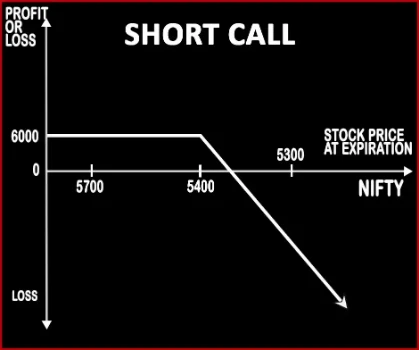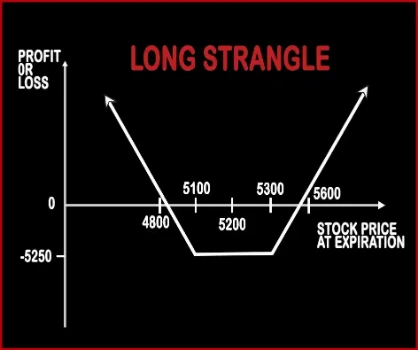Compare Strategies
| SHORT CALL | LONG STRANGLE | |
|---|---|---|

|

|
|
| About Strategy |
Short Call Option StrategyA trader shorts or writes a Call Option when he feels that underlying stock price is likely to go down. Selling Call Option is a strategy preferred for experienced traders. However this strategy is very risky in nature. If the stock rallies on the upside, your risk becomes potentially unquantifiable and unlimited. If the strategy |
Long Strangle Option StrategyA Strangle is similar to Straddle. In Strangle, a trader will purchase one OTM Call Option and one OTM Put Option, of the same expiry date and the same underlying asset. This strategy will reduce the entry cost for trader and it is also cheaper than straddle. A trader will make profits, if the market moves sharply in either direction and gives extra-ordinary returns in the .. |
SHORT CALL Vs LONG STRANGLE - Details
| SHORT CALL | LONG STRANGLE | |
|---|---|---|
| Market View | Bearish | Neutral |
| Type (CE/PE) | CE (Call Option) | CE (Call Option) + PE (Put Option) |
| Number Of Positions | 1 | 2 |
| Strategy Level | Advance | Beginners |
| Reward Profile | Limited | Unlimited |
| Risk Profile | Unlimited | Limited |
| Breakeven Point | Strike Price of Short Call + Premium Received | Lower Breakeven Point = Strike Price of Put - Net Premium, Upper Breakeven Point = Strike Price of Call + Net Premium |
SHORT CALL Vs LONG STRANGLE - When & How to use ?
| SHORT CALL | LONG STRANGLE | |
|---|---|---|
| Market View | Bearish | Neutral |
| When to use? | It is an aggressive strategy and involves huge risks. It should be used only in case where trader is certain about the bearish market view on the underlying. | This strategy is used in special scenarios where you foresee a lot of volatility in the market due to election results, budget, policy change, annual result announcements etc. |
| Action | Sell or Write Call Option | Buy OTM Call Option, Buy OTM Put Option |
| Breakeven Point | Strike Price of Short Call + Premium Received | Lower Breakeven Point = Strike Price of Put - Net Premium, Upper Breakeven Point = Strike Price of Call + Net Premium |
SHORT CALL Vs LONG STRANGLE - Risk & Reward
| SHORT CALL | LONG STRANGLE | |
|---|---|---|
| Maximum Profit Scenario | Max Profit = Premium Received | Profit = Price of Underlying - Strike Price of Long Call - Net Premium Paid |
| Maximum Loss Scenario | Loss Occurs When Price of Underlying > Strike Price of Short Call + Premium Received | Max Loss = Net Premium Paid |
| Risk | Unlimited | Limited |
| Reward | Limited | Unlimited |
SHORT CALL Vs LONG STRANGLE - Strategy Pros & Cons
| SHORT CALL | LONG STRANGLE | |
|---|---|---|
| Similar Strategies | Covered Put, Covered Calls | Long Straddle, Short Strangle |
| Disadvantage | • Unlimited risk to the upside underlying stocks. • Potential loss more than the premium collected. | • Require significant price movement to book profit. • Traders can lose more money if the underlying asset stayed stagnant. |
| Advantages | • With the help of this strategy, traders can book profit from falling prices in the underlying asset. • Less investment, more profit. • Traders can book profit when underlying stock price fall, move sideways or rise by a small amount. | • Able to book profit, no matter if the underlying asset goes in either direction. • Limited loss to the debit paid. • If the underlying asset continues to move in one direction then you can book Unlimited profit . |